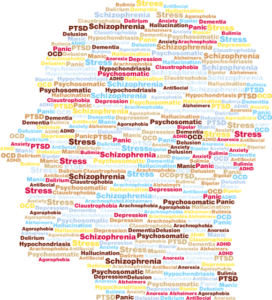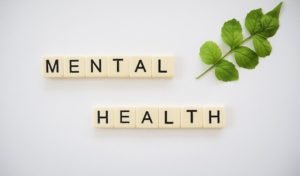As a fact of the matter, lockdown is abnormal. We can’t force people to act normally in it, especially children. They get bad-tempered, irritable, touchy, and cranky when they are forced to stay home and deprived of socializing with their friends. But sometimes, as in the present situation of the pandemic, even un-freedoms are an act of kindness. The question, however, still remains: How to take care of children, both physically and mentally, during the lockdown? For this reason only, Zaanvun Lokchaar, reached out to Dr Syed Karrar Hussain, child and adolescent psychiatrist, Child Clinic -SMHS hospital, Srinagar, to help us solve the mental health issues the children and young adults would come across during the quarantine days. Our assistant editor, Mr Bashir Ahmad Dar has asked seven questions to Dr Karrar regarding the same.
Q. Dr Karrar, thank you for taking time for answering our questions. Would you please explain to us what does mental health mean? When can we say a child or person is mentally healthy?
Ans. There is no single definition of mental health or mental well-being but the concept is much more emphasized in positive psychology where we consider mainly three aspects: Emotional, social, and psychological. That means having sufficient abilities in these three domains to meet the ordinary challenges of daily life with satisfactory levels of functioning. It is more or less this unstable continuum of where every one of us falls somewhere.

Now, coming to the second part of the question. In a broader sense, if a child has an inability (due to various reasons) to acquire proper emotional, social and psychological skills to meet the tasks required at his various stages of development, we say he has a different thinking pattern which isn’t in sync with his physical growth. Broadly speaking, a child passes through infancy, toddler, school going, early and late adolescence. At each stage, it has different tasks to achieve. For example, we do not expect a six year old child to wet his pants, not understanding emotions and instructions from parents, or throwing severe tantrums. But at the age of two, these are normal things.
Q. How can we come to know that a particular child or person is depressed? What could be the symptoms for a naked eye?
Ans. In Kashmir, the term “Depression” is frequently used in lay jargon for any mental illness without any distinction. There are various reasons for it and I don’t want to go in detail about that. Depression is one of the mental illnesses which manifest in adolescents more or less in the same way as in the adults albeit with some differences in presentation.
Usually a depressed child remains withdrawn or can become aggressive with remarkable changes in his usual behaviours that could last for a few weeks. The affected child may loses interest in studies and play which starts affecting the normal course of his life that are often reflected in academic and school performance. There may also be sleep and appetite disturbances. Most of the children with the condition, as far as my experience with them is concerned, report with abdominal pains and other bodily aches. They are often referred to us by physicians or paediatricians, who are usually their first contact.
Q. Why do people usually ignore the importance of mental health?
Ans. There are numerous reasons for that. Well, I think the unawareness and ignorance regarding mental health which is coupled with the fear of stigma or labelling are the primary causes. Almost all the cultures and societies worldwide face this huge huddle of stigmatization. They see the illness as a patients fault. Likewise in Kashmir, the most popular words and phrases, derogatory ones, used to describe a person with mental condition include, pagal, douelmut, magezo kin khraab, devan, etc. Although lot of things are changing with increasing knowledge and awareness about mental health, its roots are too deep in our cultures to beat this menace in a shot span of time.
Q. At present, how far is COVID-19 causing mental depression among the children in particular?
Ans. Well, in these unprecedented crisis where there is huge unpredictability and uncertainty in the backdrop of fear of contracting the disease with shrinkage of living spaces due to shutdown (which is important to do), it will take huge toll on our mental well-being. It’s sort of chronic low intensity stress meddling with our autonomic responses that otherwise has survival advantage in usually fearful and worrisome situations. Child may become fearful and shows changes in behaviour. Having said that, except for only small minority of children, they do fairly well if provided protective and warm environments with consistent assurances from caregivers.
Q. How can we educate our children about the new virus and, at the same time, don’t make them nervous or stressful?
Ans. It’s very important question. To tide over this crisis period, it becomes imperative to have honest conversations with children, manage their daily routines, play time, study time, arts and paper pencil tasks, and storytelling among other things. Scheduled screen time i. e. television, tabs, and laptops, should be allowed only with proper supervision of content. Demonstrate the children about regular hygiene practices like sneezing over elbows, washing hands, and alternative modes of social greetings, based on their age and development level. Most importantly, parents can use this opportunity to know their children, spend time in joint, full-of-fun, activities.

Besides, provide children the information regarding the lot of people who continue to help in such situations. Be honest. Not only children, parents should also avoid watching too much overhyped news outlets surrounding this crisis. Children usually model how parents react to the situations. Beware; you are yourself reassured and dealing the crisis with positivity.
Moreover, I would suggest creating atmosphere where child may be encouraged to ask questions or express emotions related to their fears. Children can often get worried about their safety or safety of their parents and relatives. We can tell them honestly how to ensure safety from the virus by following hygienic practices and social distancing. Many times we have to listen and probe to understand their worries and concerns as children don’t usually open up. Unless parents won’t understand what is bothering them, it is always difficult to provide any remedy.
Q. How to rehabilitate such children if we are able to identify the basic symptoms of any condition? Is mental health counselling at home sufficient or should we seek consultation of a trained psychiatrist?
Ans. Not all children with mental health issues need structured or intensive therapies or consultation, but in severe cases referrals are important and the early the better. Usually it’s the parents or caretakers who need to be trained and counselled and if need arises, children need to be brought in too. Fortunately, children respond very well to the counselling, even better than adults if managed properly.
Q. What are the measures that you think can be taken both at collective level and individual level to overcome this problem?
Ans. We are still in infancy as far as providing child and adolescent mental health services. We have started some services at Child Guidance and Wellbeing Centre, SMHS hospital from last one year. But there is still a long way to go.

Given the burden of mental health problems in children in our region, it needs a comprehensive approach where preventive measures of the topic at hand are touched. Policy makers, administrators, educationists, and all mental health professionals dealing with children -including the civil society -need to get together and work for the children because they are taking the reins of the world tomorrow.
Stay Home and Stay Strong, thank you.

